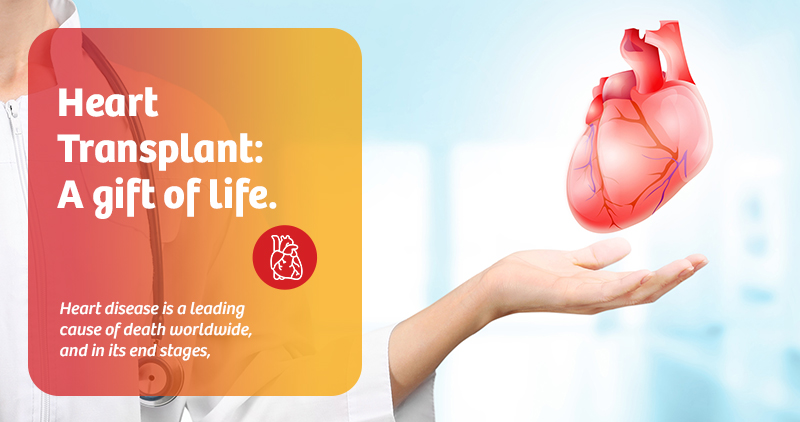

By Dr Kishore Gupta
Consultant Cardiothoracic & Transplant Surgeon
Feb 14, 2025
Heart disease is a leading cause of death worldwide, and in its end stages, a heart transplant can be a life-saving option. India has made significant strides in the field of heart transplantation, offering hope to patients with severe cardiac conditions.
The first heart transplant in India was performed in 1968, but the procedure didn't become more established until the 1990s. Passing the Transplantation of Human Organs Act in 1994 was crucial in enabling deceased donor organ transplantation. Since then, India has witnessed a steady increase in successful heart transplants, thanks to advancements in medical technology, surgical expertise, and post-transplant care.
Heart failure occurs when the heart is unable to pump blood efficiently, leading to fatigue, fluid retention, and other severe symptoms. Diagnosis often involves an echocardiogram, which measures the heart's Ejection Fraction (EF) — a critical indicator of heart function. Additionally, the presence of NT-pro BNP (N-terminal pro-B-type natriuretic peptide) in the blood signals heart distress, commonly seen in heart failure patients. For patients with end-stage heart failure who don't respond to medical management, heart transplantation may be the only option for survival. These patients are added to a national transplant waiting list, and a donor's heart is matched based on various factors such as urgency, age, blood type, and body size.
Donating a heart occurs when a person is declared brain dead but remains on a ventilator, allowing their heart to stay oxygenated. Heart donation is critical to the success of heart transplants, but the demand far outweighs the number of available donor organs.
When a donor heart becomes available, recipients are matched based on several factors, including:
This matching system ensures that the heart is most suitable for the recipient, optimising the chances of a successful transplant.
Before transplant surgery can proceed, both the donor and recipient undergo extensive assessments:
Once a suitable donor heart is found, transplantation begins with its removal, cooling, and preservation. During surgery, the patient is placed on a heart-lung machine, which maintains blood circulation and oxygenation while the heart is removed and replaced.
This complex procedure typically lasts 4 to 8 hours, depending on the patient's condition and the complexity of the surgery. Most recipients can begin to walk within a few days and are typically discharged from the hospital within 10 to 15 days after surgery.
A successful heart transplant is more than just surgery — it requires diligent follow-up care to ensure the transplanted heart is functioning correctly and to prevent complications. Post-transplant protocols focus on several key areas:
A heart transplant involves a diverse and skilled team of specialists to ensure the best outcome. It includes professionals from:
A leading heart transplant hospital in Gujarat.
Heart transplantation is a highly specialised and complex process that extends far beyond the surgery itself. Our trained and dedicated team at KD Hospital works from the initial diagnosis of heart failure through donor matching, surgery, and intensive post-operative care; each phase plays a critical role in the success of the transplant. We have specialised transplant OT, ICU and experts who give 24 X 7 care to the transplant patient.
While the path to a heart transplant is filled with challenges, the advances in medical technology and patient care protocols have made it a viable option for many. With ongoing advancements in both surgical techniques and post-transplant care, heart transplantation continues to save lives and offer hope to those in need.